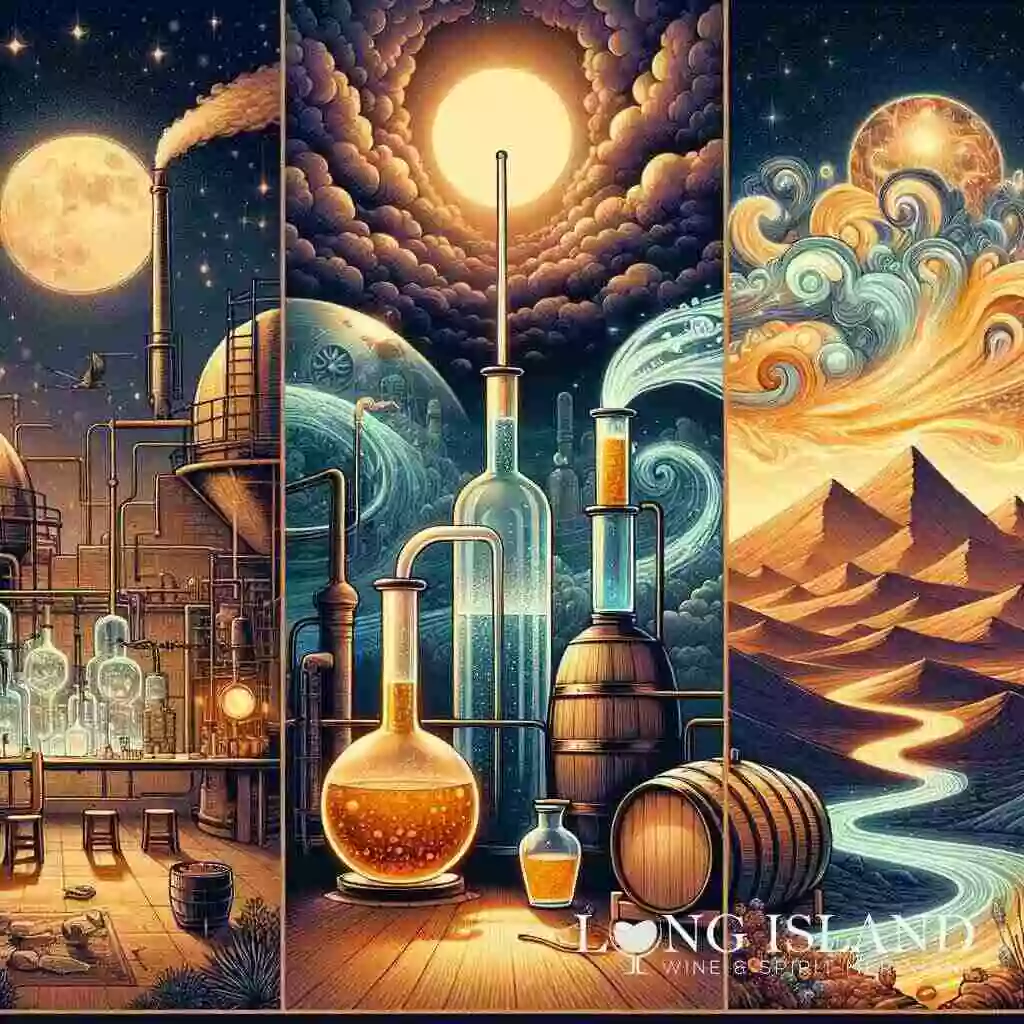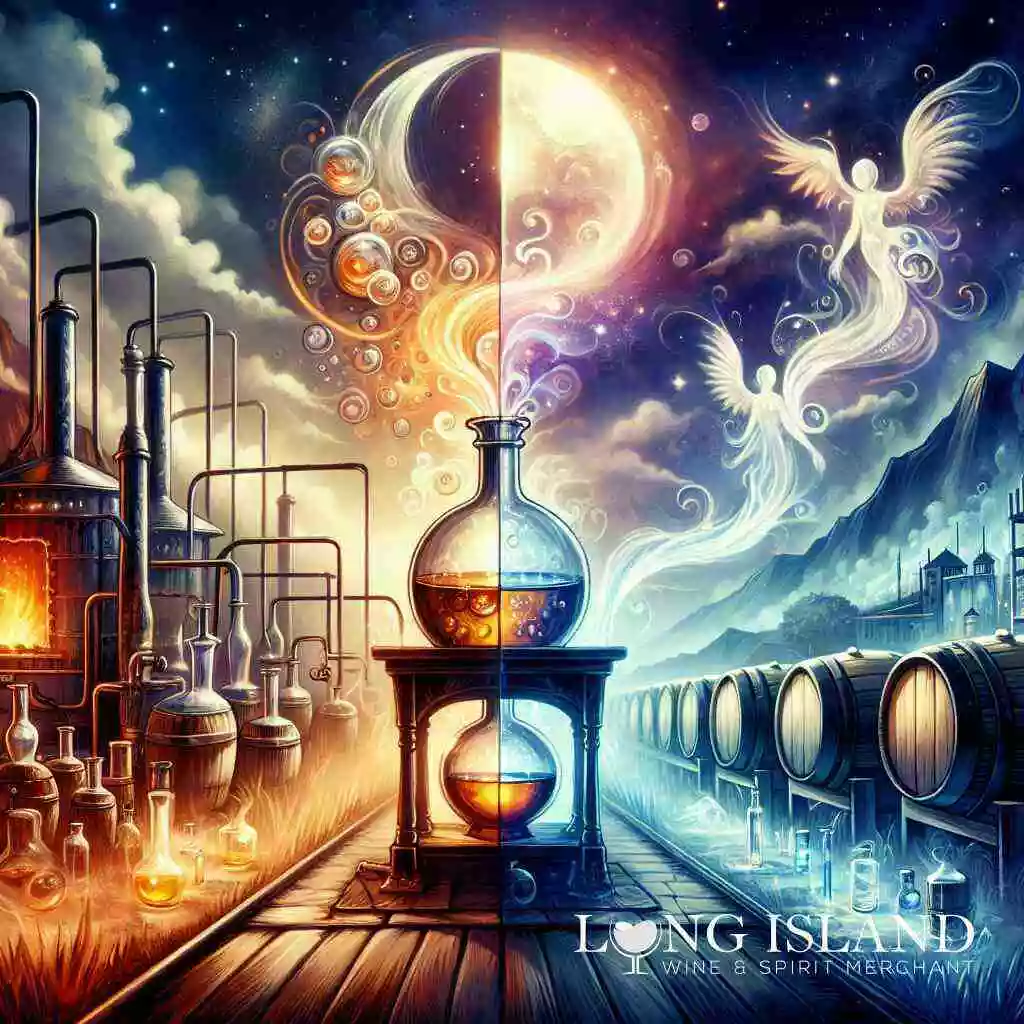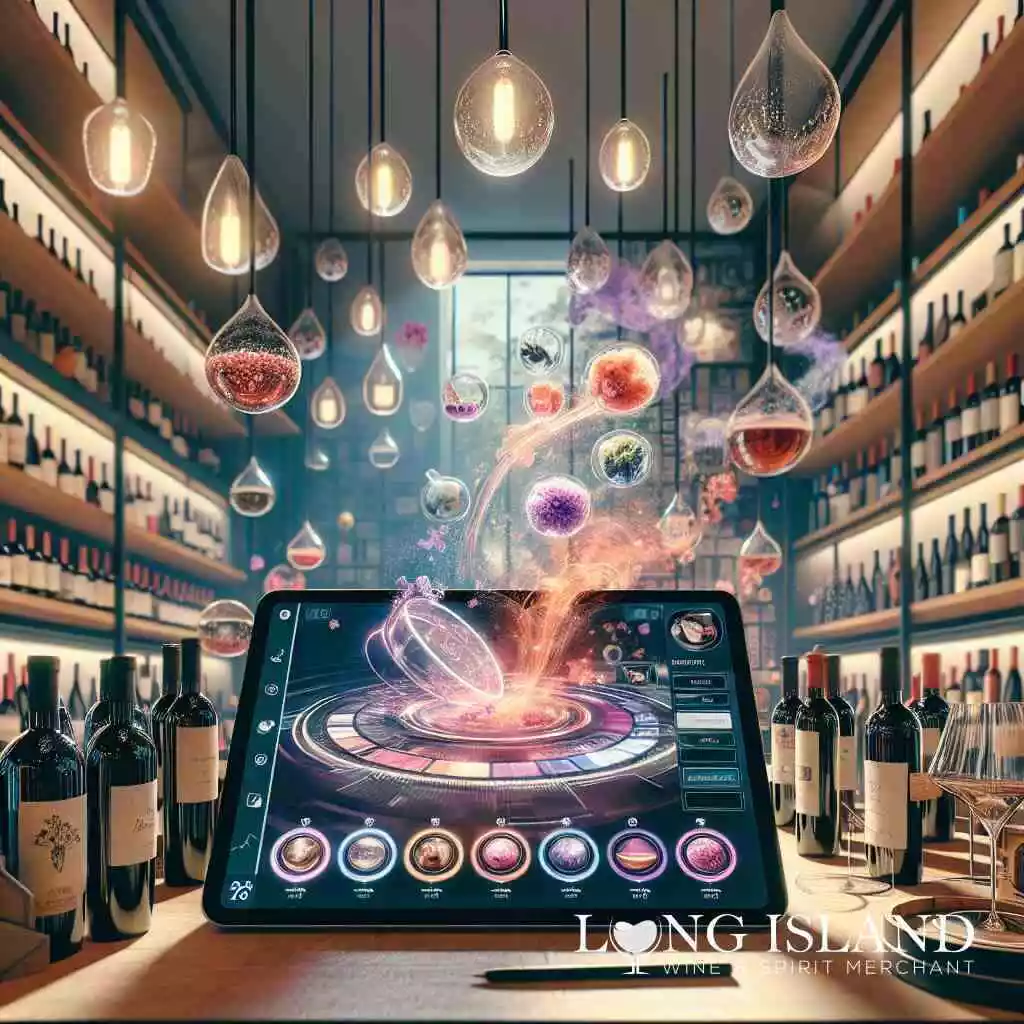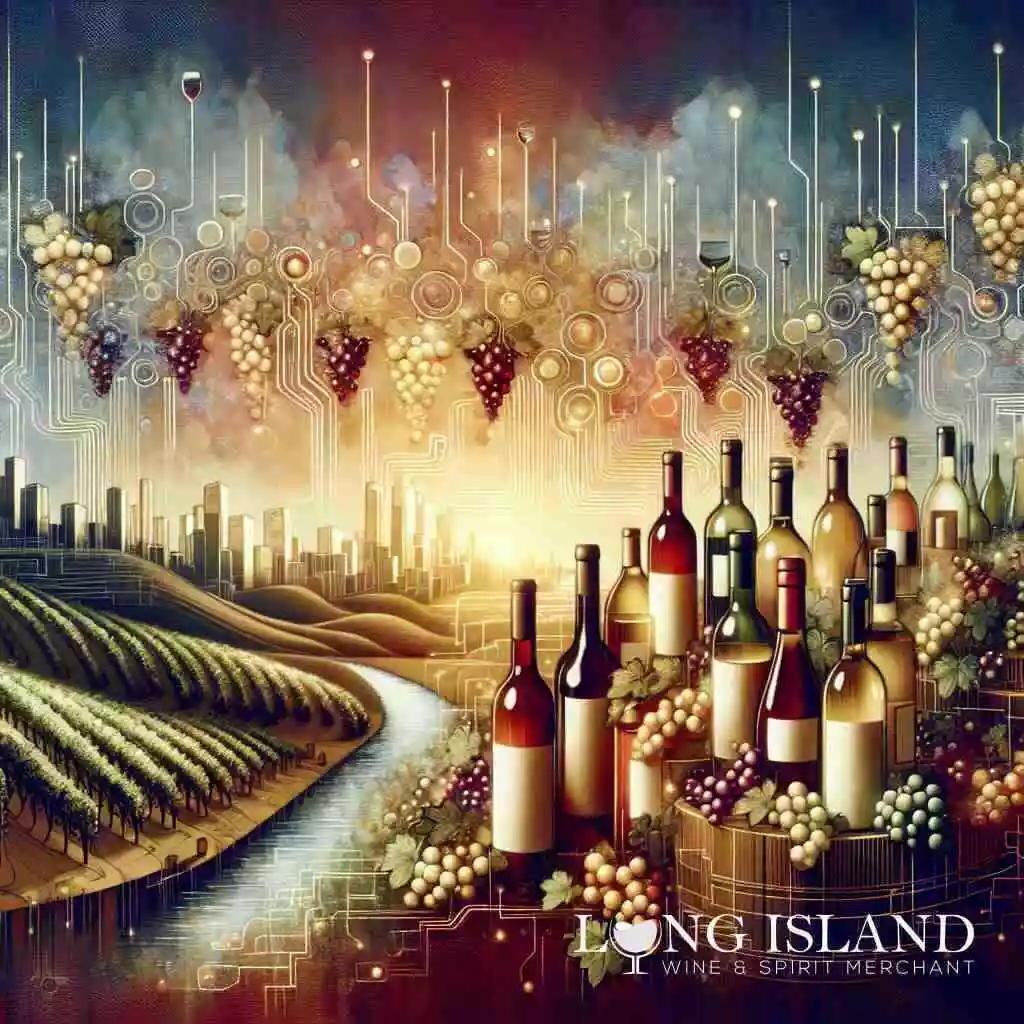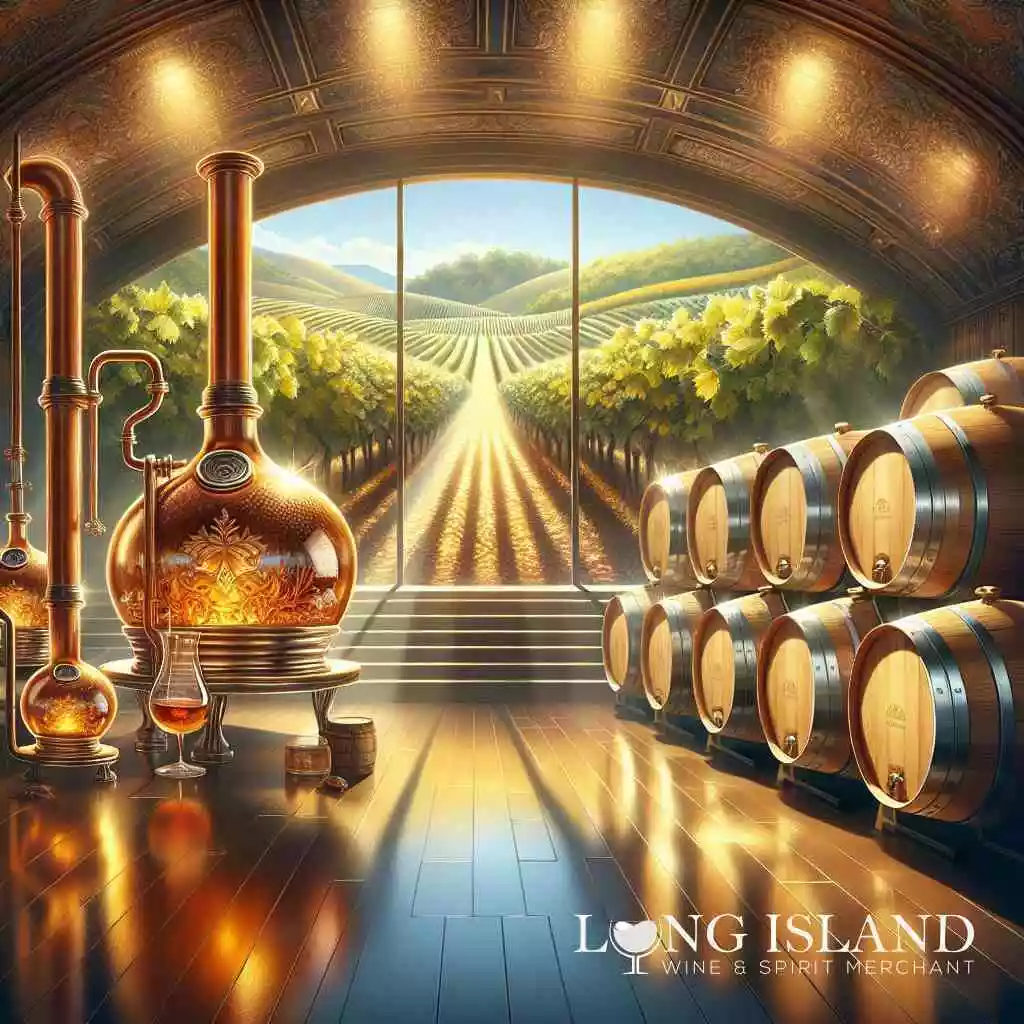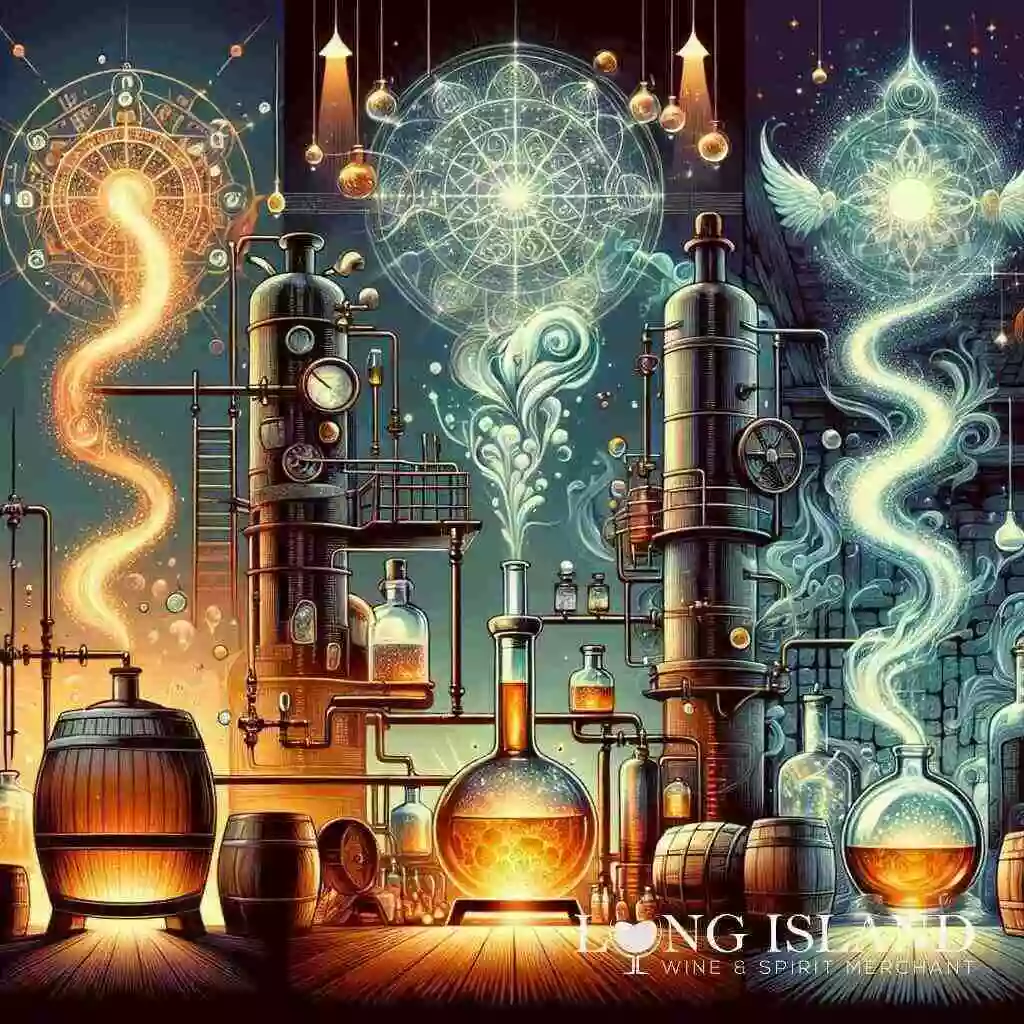
Why Is Alcohol Called Spirits?
May 19, 2024
Unveiling the Essence
Introduction to alcohol history
The fascinating journey of alcohol through the annals of human history is as intoxicating as the beverages themselves. From the ancient man’s accidental discovery of fermentation to the sophisticated distillation processes of today, alcohol has played a significant role in social rituals, medicinal practices, and cultural traditions. This deep dive into the history of alcohol reveals not only its evolution but also its impact on societies throughout the ages. From the earliest known records in Mesopotamia and Egypt to the grog of pirates and the speakeasies of the American Prohibition era, each era’s preferred spirits reflect the technological, economic, and social dynamics of the time.
The journey from ancient brews to distilled beverages
Long before the concept of distillation was introduced, ancient civilizations were brewing their versions of alcoholic beverages. These early drinks were primarily made from fermented grains, fruits, or honey, and played an integral part in religious ceremonies, festivals, and daily life. The transition from these rudimentary brews to distilled beverages marked a significant turning point in alcohol history. Distillation, believed to have been developed by Arab chemists in the 8th century, allowed for higher alcohol content and a purer form of spirit. The distillation process in spirits was refined over centuries, leading to the plethora of distilled drinks we enjoy today, from the fiery clear spirits of vodka and gin to the complex aged liquors like whiskey and rum.
Understanding alcohol etymology
The term “spirits” does not merely describe a liquid but carries with it a rich lexicon of history, culture, and alchemy. Delving into the alcoholic drink etymology, the word alcohol itself derives from the Arabic “al-Kuhl,” referring to the antimony powder used as eyeliner in the Middle East, which metaphorically denoted anything that had an inner essence or spirit. When Latin scholars translated Arabic texts on distillation, they adopted the term to describe the process of refining spirits. “Spirits” thus came to denote distilled beverages, as they captured the “spirit” or essence of the fermented liquid through distillation. This linguistic journey highlights the intertwined nature of language, culture, and the evolving art of distillation, framing our modern understanding of spirits not just as beverages, but as connections to the past.
Alchemy and Spirituality
The alchemical traditions in the distillation process
Alchemy, often seen as a precursor to modern chemistry, played a pivotal role in the development of the distillation process and, consequently, in the production of what we now refer to as spirits. The alchemists’ goal was not only to convert base metals into gold but also to discover a universal cure for diseases and a means of prolonging life. Alcohol’s transformation from a simple fermented liquid to a distilled spirit paralleled alchemy’s mystical objectives. The distillation process, regarded as a form of alchemical transformation, was a spiritual journey-extracting the pure essence or “spirit” from the material components. This spiritual connection with ethereal alcohol embodies the essence of alchemical traditions, where the distillation was not just a physical process but an endeavor to attain purity and enlightenment.
Spiritual connection: Ethereal alcohol and supernatural ties
The use of alcohol has often been intertwined with spiritual practices and supernatural beliefs across various cultures and religions. From the shamans of Siberia using alcohol in their rituals to communicate with the spirit world, to the use of wine in Christian communion representing the blood of Christ, alcohol has been perceived as a medium to connect the physical and the spiritual realms. This bond between alcohol and spirituality is deeply rooted in the notion that consuming spirits can alter one’s state of consciousness, facilitating a closer connection to the divine or the supernatural. The ritualistic use of alcohol to achieve ecstatic states or as offerings to gods and spirits underscores its role as a bridge between the mortal world and the ethereal, making alcohol a potent symbol of transcendence and mysticism in human culture.
Medieval alcohol: Bridging the worlds through spirits
In medieval Europe, the production and consumption of alcohol were deeply embedded in societal and spiritual life. Monasteries were centers of brewing and distillation, with monks refining the process of creating spirits not only for medicinal purposes but also as a form of liquid alchemy. Alcohol, particularly spirits, was thought to possess healing powers, capable of treating physical ailments and offering protection against evil spirits. Medieval alchemists and monks, therefore, viewed distilled alcohol as a powerful substance that could purify the body and soul, serving as a conduit between the earthly and the divine. The concept of spirits as both a physical and ethereal substance bridges the gap between the practical applications of alcohol and its symbolic significance in connecting the human with the celestial, embodying the medieval synthesis of science, spirituality, and society.
Cultural and Linguistic Roots
Alcohol terminology across cultures
The lexicon of alcohol is as varied and rich as the cultures that have distilled, fermented, and celebrated its existence. Across the globe, the words used to describe alcoholic beverages provide insight into the historical and cultural contexts in which they were developed. In some languages, the terms used for alcohol are deeply intertwined with notions of spirit and vitality, pointing towards a universal understanding of alcohol’s ability to affect the mind and body. The diversity in liquor terminology reflects not only the wide array of production methods and ingredients but also the different roles alcohol plays within societal norms and rituals. From the “sake” of Japan, which occupies a central place in both formal ceremonies and casual dining, to the “wine” of the Mediterranean with its biblical and historical significance, each term carries with it the weight of tradition and evolution.
Spirit drinks and their cultural alcohol significance
The concept of “spirit” drinks extends beyond their alcoholic content to embody the essence of cultural identity and heritage. The cultural significance of spirit drinks is evident in how they are revered, celebrated, and integrated into social and ceremonial practices around the world. In many cultures, spirits are not merely consumed for their intoxicating effects but are used to mark important milestones, from births and weddings to deaths and harvests. The crafting of spirits, from Scotch whisky to Mexican tequila, has been refined over centuries, encapsulating the knowledge, beliefs, and environmental conditions of their origins. These spirituous beverages thus become symbols of national pride and tradition, linking the past with the present in each sip.
Liquor History: The Evolution of Spirit-Naming Traditions
The evolution of spirit-naming traditions offers a window into the intertwined history of alcohol production and societal changes. Historical developments, technological advancements, and cross-cultural exchanges have all influenced how spirits have been named and categorized. The distillation techniques that gave birth to spirits were once considered a form of alchemy, aimed at extracting the very essence or “spirit” of a substance. This concept laid the groundwork for the naming of distilled beverages as “spirits.” Over time, distinctions between types of spirits have become more nuanced, reflecting variations in ingredients, distillation methods, and aging processes. The history of these naming conventions is a tapestry of innovation, colonialism, and cultural fusion, a narrative that underscores the complexity and diversity of the world of spirits. From the “eau-de-vie” of France to the “arak” of the Middle East, each name carries with it stories of geography, cultivation, and human ingenuity, making the history of liquor as intoxicating as the drinks themselves. The progression from rudimentary fermented concoctions to sophisticated distilled spirits is a testament to humanity’s enduring quest to refine and enhance the pleasures of the palate, a journey captured in the very names we use to describe these potent brews.
Modern Mystique of Spirits
The enduring mystique of intoxicating spirits
The allure of spirits has pervaded centuries, evolving from ancient alchemical practices to a staple of modern-day celebrations and quiet evenings alike. This enduring fascination with spirits is not merely due to their intoxicating effects but also encompasses the rich history, complex craftsmanship, and the sheer variety of flavors and experiences they offer. From the fiery notes of a well-aged whiskey to the smooth, subtle elegance of a fine vodka, spirits continue to enchant and inspire. This mystique is further enhanced by the rituals surrounding their consumption and the craftsmanship involved in their production, from distillation to aging. The modern appreciation of spirits goes beyond their taste, delving into the artistry and history imbued in each bottle, making them timeless treasures in the world of beverages.
Alcohol soul: The spiritual symbolism in branding
In the realm of spirits, branding transcends mere marketing, embracing the spiritual symbolism that has long been associated with alcohol. Names, labels, and stories behind spirit brands often delve into myths, legends, and cultural histories, infusing each bottle with a sense of mystery and antiquity. This approach not only honors the historical roots of spirits but also taps into the deep, often subconscious connections people have with alcohol as a link to the divine, the mystical, and the elusive essence of life itself. Brands that skillfully weave spiritual symbolism into their identity invite consumers to partake in a narrative that transcends time and place, evoking a sensory experience that touches the soul as much as it delights the palate.
How Order Alcohol Online brings historical spirits to your doorstep
In an age where the world’s riches are just a click away, Order Alcohol Online serves as a modern-day conduit, providing access to a global selection of spirits steeped in history and tradition. By meticulously curating a collection that spans the spectrum from time-honored classics to innovative new blends, Order Alcohol Online bridges the gap between the ancient art of spirit-making and the contemporary quest for quality and convenience. Whether you’re a connoisseur seeking the distilled essence of a far-off land or a casual enthusiast looking to explore the depths of your taste preferences, Order Alcohol Online delivers the world’s spirits to your doorstep. Their services, including alcohol delivery near Long Island, custom liquor gift ideas, and even a wine taste quiz specifically designed for the discerning palate of Long Islanders, encapsulate the modern desire for personalized, luxury shopping experiences from the comfort of home. This commitment to quality, variety, and unparalleled service ensures that the mystique and allure of the world’s spirits remain accessible to all, inviting consumers to embark on a journey of discovery and delight through each bottle ordered.
Conclusion: Savor the Spirit
The continuous allure of alcoholic spirits
The journey through the world of spirits reveals a rich tapestry of history, culture, and craftsmanship that continues to captivate the human imagination. From its origins rooted in ancient alchemy and spirituality to its evolution into a symbol of social and cultural identity, alcohol has maintained an enduring allure across centuries. The process of distillation, as much an art as it is a science, captures the essence of fermented fruits, grains, and botanicals, transforming them into the distilled beverages known as spirits. These spirits carry with them the stories of their origins, the mastery of their makers, and the traditions of the people who have cherished them through time. The alcohol history and spirits narrative is a compelling reminder of alcohol’s role not just as a social lubricant or a means of celebration, but as a bridge connecting the past with the present, and the tangible with the intangible.
Embracing the legacy of spirits through Order Alcohol Online selections
Order Alcohol Online, headquartered in Commack, New York on Long Island, offers a unique portal to this rich historical and cultural legacy through its extensive collection of spirits. From the comfort of your home, you can explore a world of flavors, stories, and traditions with their easy-to-navigate online platform. Whether you’re drawn to the robust complexity of a finely aged whiskey, the refreshing clarity of a meticulously distilled vodka, or the warm, rich notes of a rare cognac, Order Alcohol Online brings these experiences directly to your doorstep. Their custom liquor gift ideas and specialized services like alcohol delivery and bottle engraving further personalize the journey, turning the act of purchasing spirits into an opportunity for discovery and connection. With a focus on quality and customer satisfaction, Order Alcohol Online ensures that each selection is not just a transaction, but an invitation to partake in the global and historical tapestry of spirits.
In embracing the offerings of Order Alcohol Online, one does not simply acquire bottles of alcohol, rather, they immerse themselves in the storied legacy of spirits that span civilizations and cultures. The essence of spirits, distilled from the earth’s bounty and refined through human ingenuity, remains a testament to our perennial desire to connect, celebrate, and savor the nuances of life. The continuous allure of alcohol spirits lies in their ability to embody the complexity of human experience, reflecting our joys, sorrows, and the endless pursuit of beauty and transcendence. Through the selections available at Order Alcohol Online, we are invited to explore this rich heritage, bringing the timeless mystique of spirits into our homes and lives, one sip at a time.
Frequently Asked Questions
Question: What historical insights does “Why Is Alcohol Called Spirits?” offer regarding the spiritual connection of alcohol?
Answer: The blog “Why Is Alcohol Called Spirits?” delves into the deep, historical interplay between alcohol and spirituality, uncovering how distilled beverages have been intrinsically linked to the ethereal and supernatural realms. It highlights the alchemical traditions and the spiritual journey of distillation, where alcohol was believed to extract the pure essence or “spirit” of the material components. Order Alcohol Online, with its wide selection of spirits rooted in rich histories and cultures, offers a unique portal to explore these connections. By choosing from our variety of distilled beverages, you’re not just enjoying a drink, you’re partaking in an age-old tradition of connecting with the spiritual and mystical dimensions that alcohol has bridged for centuries.
Question: Can you elaborate on the significance of alcohol etymology and how it influences our understanding of distilled beverages?
Answer: Certainly! The term “alcohol” has its roots in the Arabic “al-Kuhl,” which originally referred to a fine powder used for eyeliner, symbolizing something that had an inner essence or spirit. This concept evolved through the Latin scholars translating Arabic texts on distillation to refer to the process of obtaining the “spirit” of a liquid through distillation. At Order Alcohol Online, our collection of spirits embodies this rich etymological heritage, offering a window into the cultural and linguistic roots that shape our current understanding of these beverages. Each bottle in our selection not only represents the pinnacle of distillation art but also invites you to appreciate the deep historical and cultural narratives that have named and framed distilled beverages over the centuries.
Question: How do spirit drinks reflect their cultural alcohol significance across different societies?
Answer: Spirit drinks serve as a mirror reflecting the vast array of cultural significances and ceremonies around the globe. From the “wine” of the Mediterranean, symbolizing festivity and divinity, to the “sake” of Japan, central to both formal and informal gatherings, each spirit drink is steeped in its unique heritage. At Order Alcohol Online, we cherish and respect these diverse cultural backgrounds. Our wide assortment of spirit drinks- from gin, rum, vodka, and whiskey to cognac, encapsulates the essence of their origins, allowing our customers to embark on a global tasting journey from the comfort of their homes. By exploring our selection, you’re not just sampling alcohol, you’re experiencing the rich tapestry of global alcohol significance and the unique stories each culture brings to the table.
Question: What role does the alchemical tradition play in the history of spirit distillation and how does it influence contemporary spirits?
Answer: Alchemical tradition plays a foundational role in the history of spirit distillation, with its pursuit to transform basic substances into something of greater value. This pursuit of transformation parallels the distillation process, where the essence or “spirit” of a fermented liquid is refined into a higher-alcohol content beverage. Order Alcohol Online offers a curated selection of spirits that epitomize the pinnacle of this alchemical process. Each spirit in our collection, be it vodka, whiskey, or cognac, is a testament to the centuries-old tradition of alchemy-where the search for purification and perfection in the distillation process results in the complex, nuanced beverages we cherish today. Our modern, sophisticated distilling techniques are directly descended from these alchemical practices, ensuring that every sip ties back to an extensive legacy of artisanal craftsmanship and innovation.
Question: In today’s digital age, how does Order Alcohol Online bring the mystique of intoxicating spirits to enthusiasts’ doorsteps?
Answer: In the digital age, Order Alcohol Online bridges the gap between the timeless allure of spirits and the convenience of modern technology. We’ve meticulously crafted a platform where enthusiasts can explore and order a wide range of spirits online, bringing the world’s finest liquors directly to their doorsteps. Our collection spans from traditional favorites to rare finds, each selected for its quality, craftsmanship, and heritage. With services like alcohol delivery, custom liquor gift ideas, and even a wine taste quiz tailored for Long Islanders, we provide a personalized and accessible way to discover and enjoy the world’s most enchanting spirits. Whether you’re a connoisseur or new to the world of distilled beverages, Order Alcohol Online offers a seamless, informative journey through the rich history and vibrant culture of spirits, all from the comfort of your home.
